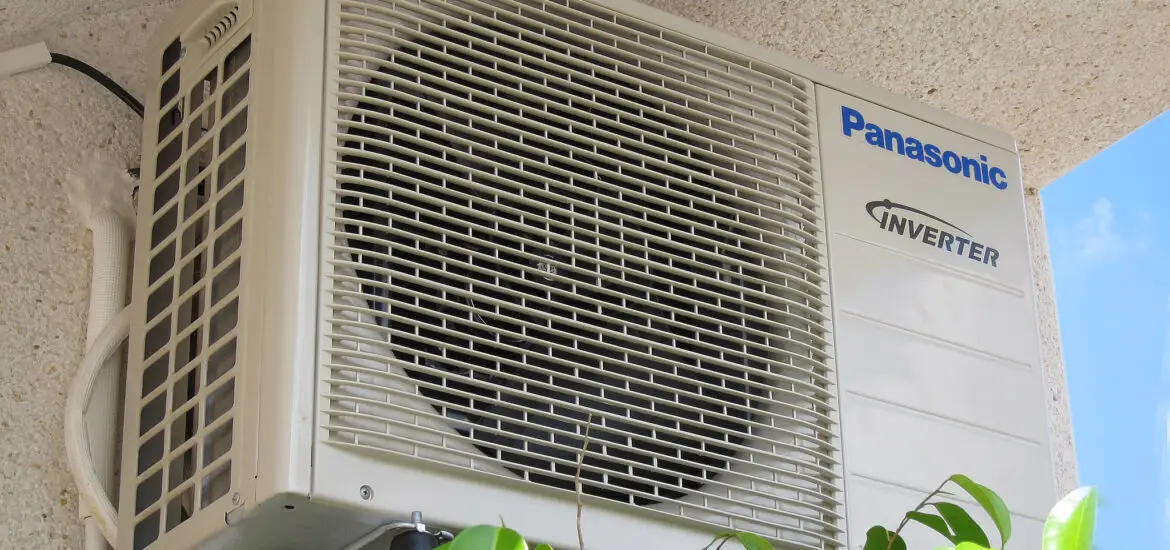“Why is freon leaking from my air conditioner or refrigeration unit?” This guide reveals these reasons and provides solutions to help you address this issue.

Table of Contents
Why is Freon Leaking?
Below are the common reasons why freon is leaking from your air conditioner or refrigeration unit.
Wear and Tear Over Time
Over time, every air conditioning unit experiences wear and tear due to regular use. Components like seals, hoses, and gaskets, which are crucial for containing Freon, can degrade.
This deterioration is often due to exposure to fluctuating temperatures and operational stress. The breakdown of these components can lead to small cracks or gaps, through which Freon can slowly escape.
Identifying wear and tear early requires routine inspections focusing on the condition of seals, hoses, and connections within the AC unit.
Corrosion of Metal Parts
Corrosion in metal parts of an air conditioning system, especially the evaporator and condenser coils, is a common cause of Freon leaks. This corrosion often results from prolonged exposure to moisture, acidic or basic compounds in the air, and the refrigerant itself.
Over time, these factors can lead to the thinning and eventual perforation of the metal, creating pathways for Freon to leak out. The rate and extent of corrosion can vary based on the environmental conditions and the quality of the metals used in the system.
Improper Installation
Improper installation of an air conditioning unit can create several issues that lead to Freon leaks. These issues may include poorly connected joints, improperly fitted components, or the use of incompatible parts.
Such installation errors can result in gaps or weaknesses in the system, making it prone to leaks. The impact of improper installation might not be immediately apparent but can manifest over time as the system undergoes regular use and stress.
Factory Defects
Factory defects in air conditioning units, though less common, can be a significant cause of Freon leaks. These defects might be due to errors in the manufacturing process, such as flaws in the welding of coils, imperfections in the compressor, or substandard components.
These defects can create vulnerabilities in the system where Freon can escape. Detecting factory defects typically requires a professional diagnosis and might involve warranty claims or replacements.
Vibration and Physical Damage
Vibration from the normal operation of an air conditioner can, over time, loosen fittings and components, leading to Freon leaks. Physical damage, such as impacts during maintenance or accidental hits, can also cause immediate leaks.
Consistent monitoring and tightening of fittings can help mitigate the risks associated with vibrations. In addition, ensuring the physical protection of the unit from external impacts is crucial.
Solutions for Each Cause of Freon Leak
Do these solutions to counter the causes of freon leaks.
Solutions for Wear and Tear
Addressing wear and tear involves regular maintenance and timely replacement of aging components. Scheduling professional inspections at least once a year can help catch early signs of wear.
During these inspections, technicians can replace or repair seals, hoses, and other components showing signs of deterioration. This, in turn, will prevent potential Freon leaks.
Addressing Corrosion
To combat corrosion, maintaining a clean and dry environment around the AC unit is essential. Regular cleaning of the coils and ensuring proper drainage can reduce moisture exposure.
In cases where corrosion has already caused damage, the affected parts should be professionally repaired or replaced. Using corrosion-resistant materials or coatings can also prolong the lifespan of these components.
Fixing Improper Installation
Correcting improper installation requires a thorough review and adjustment by a certified HVAC technician. This process includes checking all connections and ensuring proper fitting and alignment of components. Verifying the overall installation quality is also important.
Any identified errors should be corrected immediately to prevent Freon leaks and ensure the system’s efficiency and safety.
Dealing with Factory Defects
If factory defects are suspected, the first step is to contact the manufacturer or the supplier. In cases where the unit is still under warranty, defective parts can often be replaced or repaired at no cost.
For units out of warranty, a professional repair or part replacement will be necessary. Keeping records of purchases and warranties can aid in this process.
Preventing Vibration and Physical Damage
Preventing damage from vibration involves securing the AC unit firmly and providing adequate support and insulation. Regular checks can identify any loosened components early on.
Protecting the unit from physical impacts and ensuring careful handling during any maintenance work can prevent accidental damage, which might lead to Freon leaks.